
Grossglockner: The Majestic Peak of Austria
Grossglockner is the highest mountain in Austria, standing tall at 3,798 meters. It is part of the Hohe Tauern range and offers breathtaking views of the surrounding Alps. The mountain is a paradise for hikers, climbers, and nature lovers alike. The Grossglockner High Alpine Road is one of the most scenic drives in Europe. It winds through picturesque landscapes and offers numerous viewpoints. This road is open from May to October, and each turn reveals a new panoramic vista. At the base of Grossglockner, you will find the Pasterze Glacier, the largest glacier in Austria. It is a stunning sight and a reminder of the power and beauty of nature. There are guided tours available for those who wish to explore the glacier up close. For history enthusiasts, the area around Grossglockner is rich with cultural heritage. The region has many traditional alpine villages where you can experience local customs, cuisine, and hospitality. Visiting Grossglockner is not just about the mountain; it is about embracing the Alpine way of life.
Local tips in Grossglockner
- Check the weather forecast before your visit, as conditions can change rapidly in the mountains.
- The Grossglockner High Alpine Road is toll-based, so be prepared to pay for access.
- Wear sturdy hiking boots and bring layers of clothing, as temperatures can vary widely.
- Try local delicacies like Kaiserschmarrn and Kärntner Kasnudeln in the nearby villages.
- Visit early in the morning to avoid crowds and get the best light for photographs.
Grossglockner: The Majestic Peak of Austria
Grossglockner is the highest mountain in Austria, standing tall at 3,798 meters. It is part of the Hohe Tauern range and offers breathtaking views of the surrounding Alps. The mountain is a paradise for hikers, climbers, and nature lovers alike. The Grossglockner High Alpine Road is one of the most scenic drives in Europe. It winds through picturesque landscapes and offers numerous viewpoints. This road is open from May to October, and each turn reveals a new panoramic vista. At the base of Grossglockner, you will find the Pasterze Glacier, the largest glacier in Austria. It is a stunning sight and a reminder of the power and beauty of nature. There are guided tours available for those who wish to explore the glacier up close. For history enthusiasts, the area around Grossglockner is rich with cultural heritage. The region has many traditional alpine villages where you can experience local customs, cuisine, and hospitality. Visiting Grossglockner is not just about the mountain; it is about embracing the Alpine way of life.
When is the best time to go to Grossglockner?
Iconic landmarks you can’t miss
Großglockner Hochalpenstraße
Experience the breathtaking beauty of the Großglockner Hochalpenstraße, Austria's premier alpine road offering stunning views and outdoor adventures.
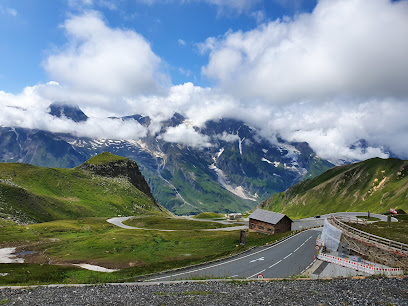
Wild & Adventure Park Ferleiten
Experience the thrill of wildlife and adventure at Wild & Adventure Park Ferleiten, a perfect family getaway in the heart of the Austrian Alps.
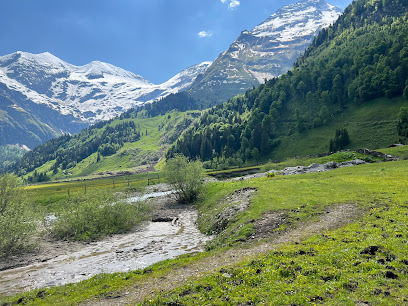
Grossglockner High Alpine Road
Experience the breathtaking beauty of the Grossglockner High Alpine Road, a stunning mountain pass in Austria that showcases nature's most awe-inspiring landscapes.
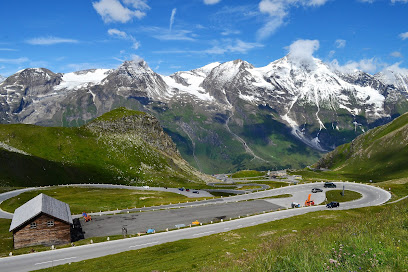
Jungfernsprung
Discover the breathtaking beauty of Jungfernsprung in Hohe Tauern National Park, a must-visit hiking area in the heart of the Austrian Alps.
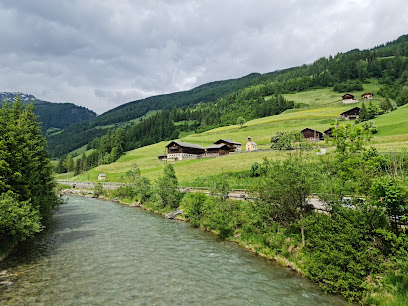
Nationalpark Hohe Tauern
Discover the breathtaking beauty of Nationalpark Hohe Tauern, Austria's largest national park, where adventure and nature unite.
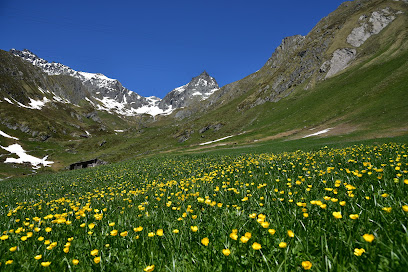
Haus Alpine Naturschau
Explore the enchanting Haus Alpine Naturschau in Fusch, Austria—where nature's beauty and alpine education come together in a magnificent setting.
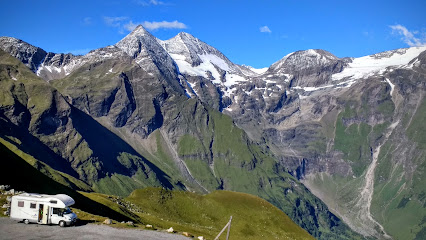
Stüdlhütte
Explore the majestic Austrian Alps at Stüdlhütte, a charming mountain cabin offering stunning views, hiking trails, and warm hospitality.
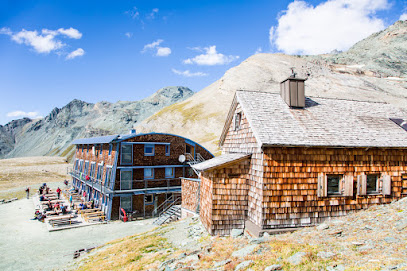
Kalser Tauernhaus
Discover the beauty of the Austrian Alps at Kalser Tauernhaus, your gateway to unforgettable hiking experiences and mountain charm.
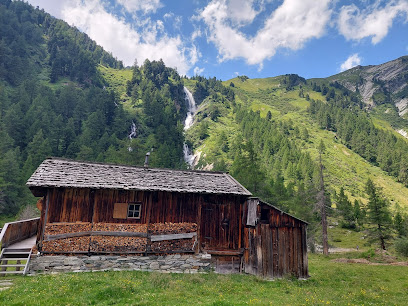
Glorer Hütte
Discover the charm of Glorer Hütte, an enchanting mountain cabin in the Austrian Alps, perfect for nature lovers and adventure seekers alike.
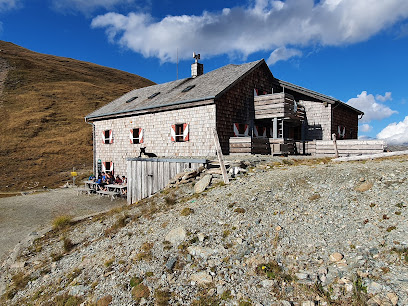
Gößnitz-Wasserfall
Discover the natural beauty of Gößnitz-Wasserfall, an awe-inspiring waterfall in Heiligenblut offering scenic hikes and stunning alpine views.
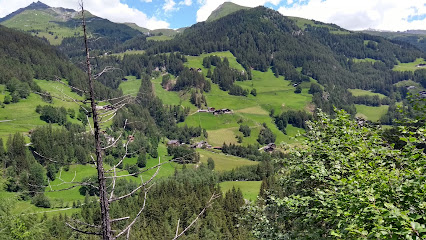
Grossglockner Gletscherbahn
Discover the stunning Grossglockner Gletscherbahn, where breathtaking views of Austria's highest peak meet thrilling mountain adventures.
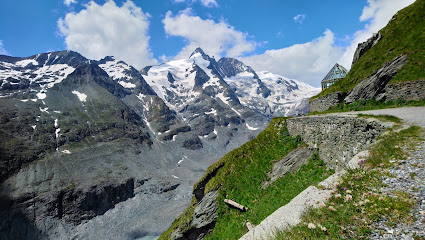
Panoramabahn Grossglockner
Explore the Panoramabahn Grossglockner - a stunning mountain cable car offering breathtaking views and unforgettable alpine adventures in Austria.
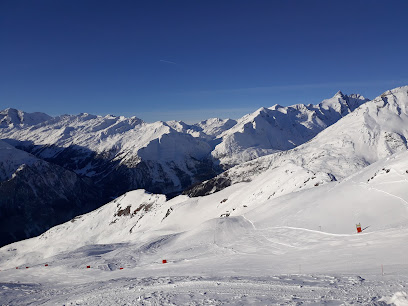
Fuscher Lacke
Experience the breathtaking beauty of Fuscher Lacke, an Alpine lake surrounded by majestic mountains and lush greenery, perfect for relaxation and outdoor adventures.
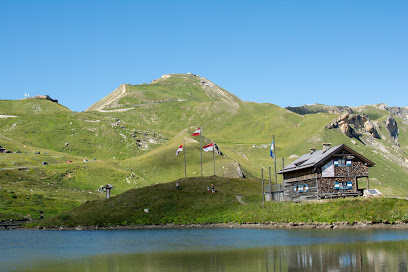
Kalser Glocknerstraße
Explore the breathtaking Kalser Glocknerstraße, an Alpine paradise with stunning views, hiking trails, and a gateway to nature's finest landscapes.
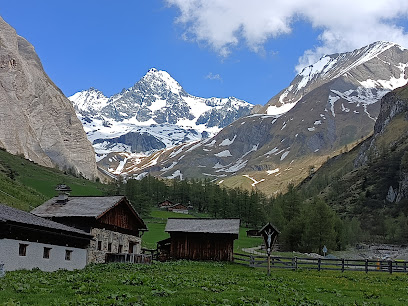
Passheiligtum Hochtor
Experience the rich cultural heritage and breathtaking scenery of the Austrian Alps at Passheiligtum Hochtor, a local history museum like no other.
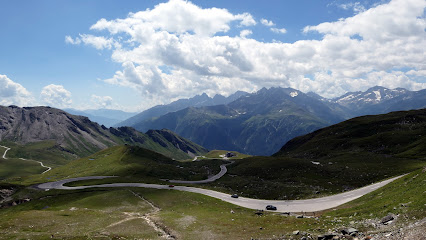
Unmissable attractions to see
Wild & Adventure Park Ferleiten
Experience the thrill of nature at Wild & Adventure Park Ferleiten, where fun and wildlife come together in the heart of the Austrian Alps.
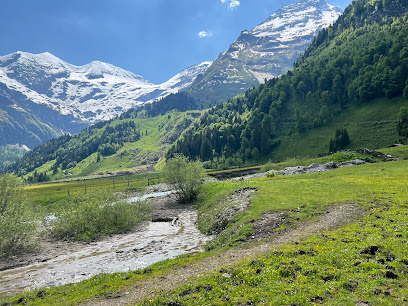
Jungfernsprung
Discover the breathtaking landscapes and exhilarating hiking experiences at Jungfernsprung in Heiligenblut am Großglockner, a must-visit natural attraction.
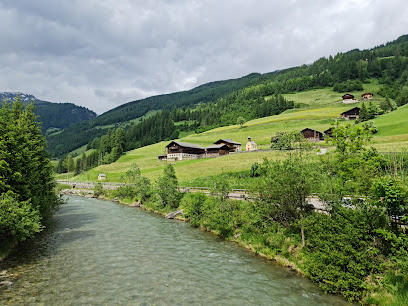
Glocknerhaus Kärnten
Experience the breathtaking beauty of the Austrian Alps at Glocknerhaus Kärnten, the ultimate mountain cabin destination for nature lovers and adventurers.
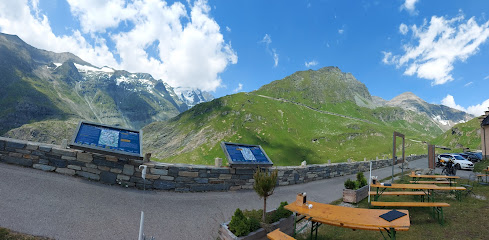
Haus Alpine Naturschau
Explore the captivating world of the Alpine ecosystem at Haus Alpine Naturschau, a unique museum experience in Fusch, Austria.
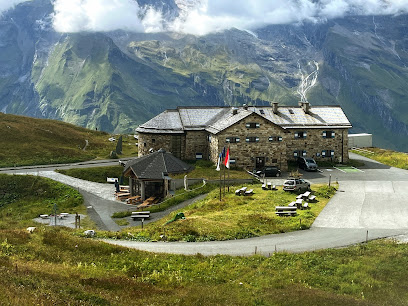
Gößnitz-Wasserfall
Discover the breathtaking beauty of Gößnitz-Wasserfall, an extraordinary waterfall in Heiligenblut am Großglockner, perfect for hiking and nature lovers.
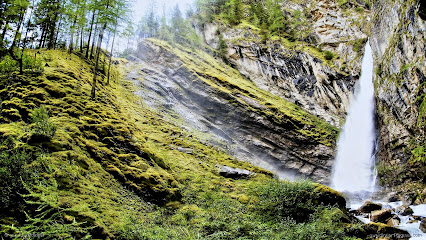
Oberes Nassfeld
Explore the breathtaking landscapes and thrilling activities at Oberes Nassfeld, the ultimate alpine destination for nature lovers and adventure seekers.
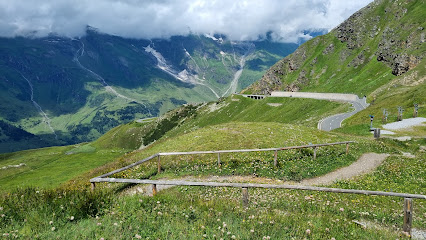
Panoramabahn Grossglockner
Experience the breathtaking views of the Austrian Alps from the Panoramabahn Grossglockner, a must-visit mountain cable car attraction for all nature lovers.
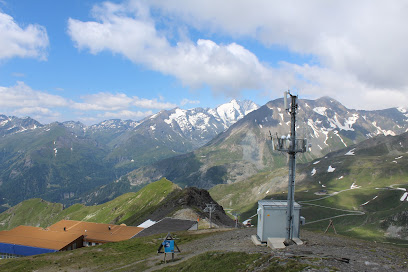
Wilhelm Swarovski Observation Point
Discover stunning views and serene landscapes at the Wilhelm Swarovski Observation Point in the heart of the Austrian Alps.
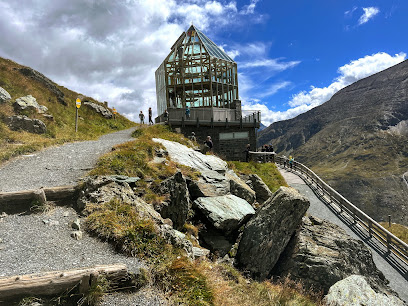
Kneippanlage Bad Fusch
Experience tranquility and wellness at Kneippanlage Bad Fusch, a serene alpine retreat offering healing waters and stunning landscapes in the heart of Austria.
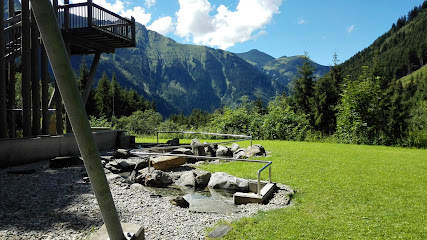
Fuscher Lacke
Experience the breathtaking beauty of Fuscher Lacke, an alpine lake in Austria perfect for relaxation, hiking, and stunning photography amidst nature.
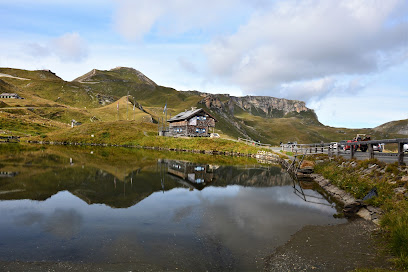
Gamsgrubenweg
Explore the breathtaking beauty of Gamsgrubenweg, a wildlife refuge in the Austrian Alps known for stunning trails, diverse ecosystems, and panoramic views.
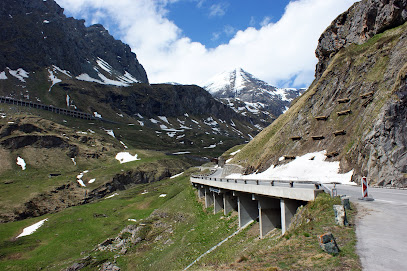
Kalser Glocknerstraße
Experience breathtaking views and adventure along the Kalser Glocknerstraße, gateway to the stunning Grossglockner and the heart of the Austrian Alps.
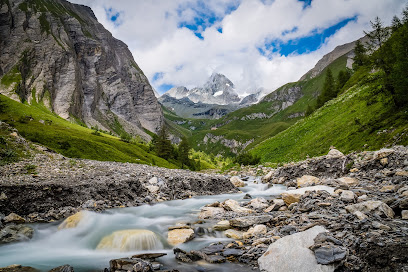
Wasserfall Erlebnisweg
Experience the breathtaking beauty of Wasserfall Erlebnisweg, a stunning waterfall trail in Fusch, Austria, perfect for nature lovers and adventure seekers.
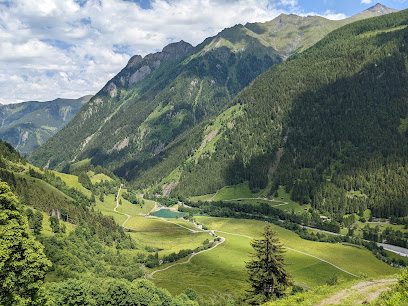
Bricciuskapelle
Explore Bricciuskapelle in Heiligenblut, a serene chapel surrounded by stunning alpine scenery and rich spiritual heritage.
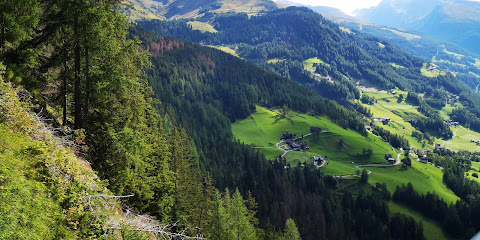
Mittertörltunnel
Discover the Mittertörltunnel, a historic tunnel in Austria that combines natural beauty with rich history, perfect for adventurous travelers.
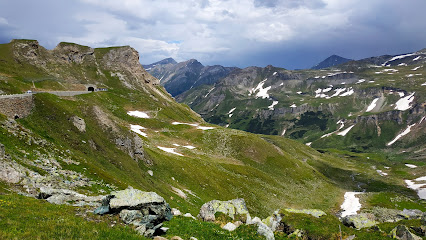
Essential places to dine
Bergrestaurant Gletschermühle
Experience authentic Austrian cuisine with breathtaking mountain views at Bergrestaurant Gletschermühle in Kitzsteinhorn.
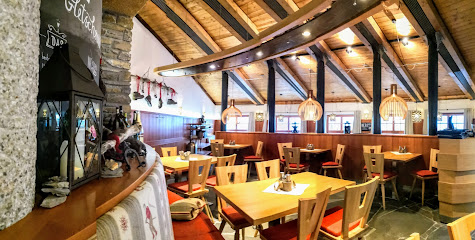
Panoramarestaurant Kaiser Franz-Josefs-Höhe und Kaiser Franz-Josef-Haus
Experience exquisite regional cuisine with unparalleled views at Panoramarestaurant Kaiser Franz-Josefs-Höhe in Austria's stunning alpine landscape.
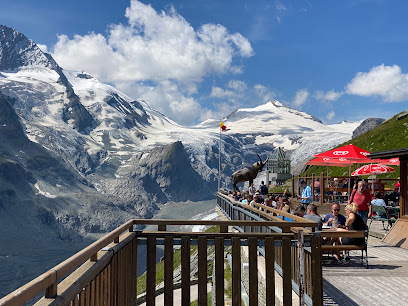
Adler Lounge
Experience exquisite dining at Adler Lounge in Kals am Großglockner, where local flavors meet modern cuisine amidst stunning alpine views.
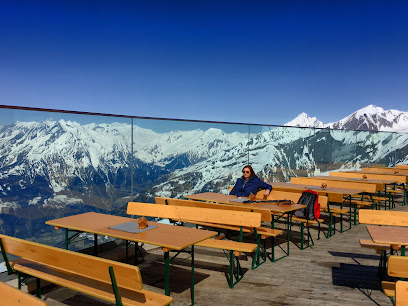
Restaurant Fuschertörl
Experience authentic Austrian cuisine with stunning alpine views at Restaurant Fuschertörl on your journey through the Grossglockner region.
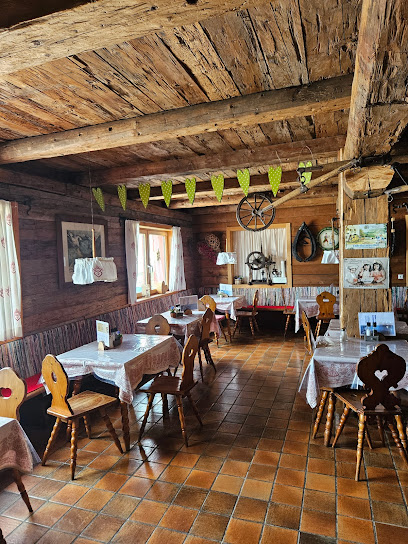
Hotel - Restaurant Lampenhäusl
Experience authentic Austrian cuisine and cozy accommodations at Hotel - Restaurant Lampenhäusl amidst breathtaking alpine scenery.
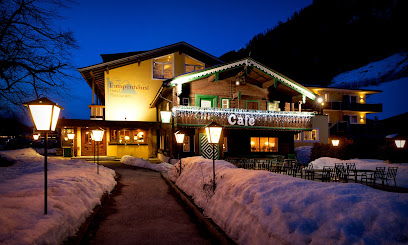
Gipfel Restaurant
Experience exquisite dining at Gipfel Restaurant amidst breathtaking alpine views on Kitzsteinhorn.
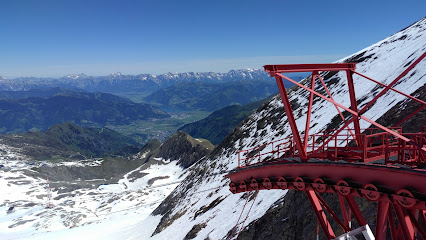
Panorama Restaurant Schareck
Experience exquisite Austrian cuisine with stunning alpine views at Panorama Restaurant Schareck in Untertauern.
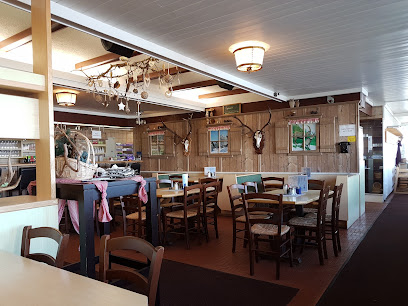
Wanderhotel Taurerwirt
Discover Wanderhotel Taurerwirt - where exquisite dining meets breathtaking alpine adventures in Kals am Großglockner.
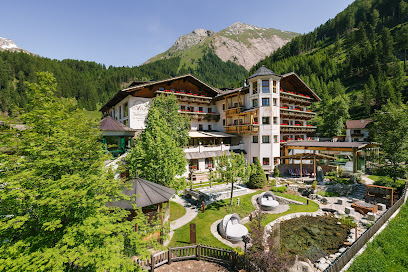
Café-Restaurant Dorfstub'm
Discover the heartwarming flavors of Austria at Café-Restaurant Dorfstub'm in Hof—where every meal is an experience steeped in tradition.
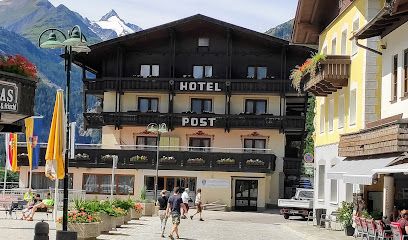
Gradonna Mountain Resort Châlets & Hotel
Discover luxury accommodation amidst stunning alpine landscapes at Gradonna Mountain Resort Châlets & Hotel - your perfect retreat in Austria.
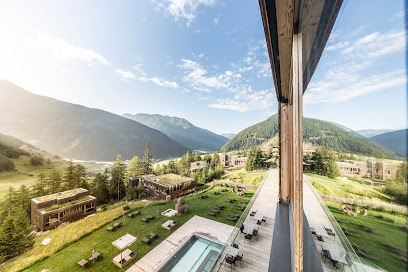
Gasthaus Gosserhof
Experience authentic Austrian cuisine at Gasthaus Gosserhof in Matrei in Osttirol amidst stunning alpine scenery.
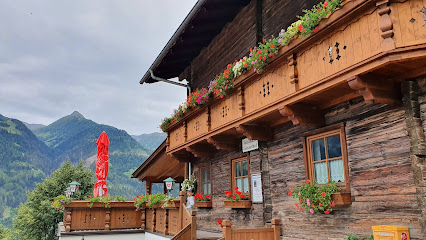
Sporthotel Heiligenblut
Experience exquisite Austrian cuisine and warm hospitality at Sporthotel Heiligenblut amidst stunning alpine scenery.
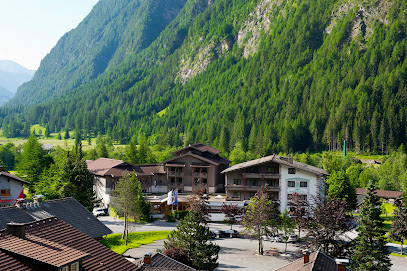
Gasthaus Wildpark-Ferleiten
Discover authentic Austrian cuisine at Gasthaus Wildpark-Ferleiten, where nature meets flavor in an unforgettable dining experience.
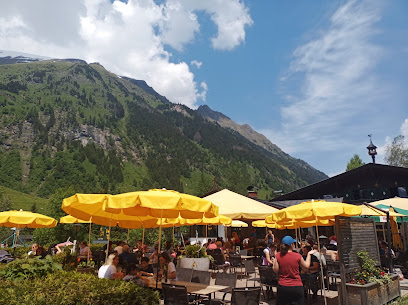
Gasthof Ködnitzhof
Discover authentic Alpine cuisine and warm hospitality at Gasthof Ködnitzhof in scenic Kals am Großglockner.

Restaurant
Experience authentic Austrian cuisine in a cozy alpine setting at Untertauern's top-rated restaurant.
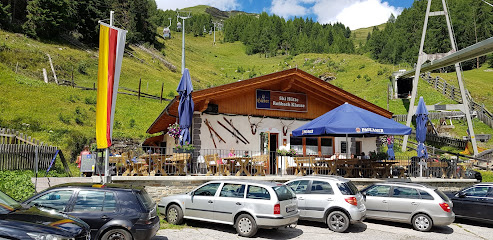
Markets, malls and hidden boutiques
Bründl Sports Flagshipstore
Explore the Bründl Sports Flagshipstore in Kaprun for the best outdoor gear and expert advice for your alpine adventures.
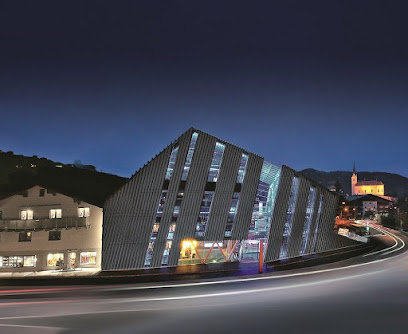
Teekorb & Tridor Zell am See specialty coffee roastery coffeeshop regionale Kaffeerösterei Cafe Kaffee tea
Discover the exquisite flavors of regional coffees and teas at Teekorb & Tridor in Zell am See, a specialty coffee roastery and café.
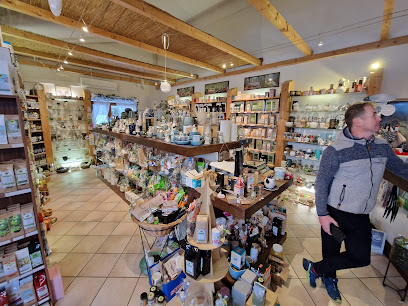
ADEG Ernst Pichler
Explore Hof's local flavors at ADEG Ernst Pichler, your one-stop supermarket for fresh produce and regional delicacies.
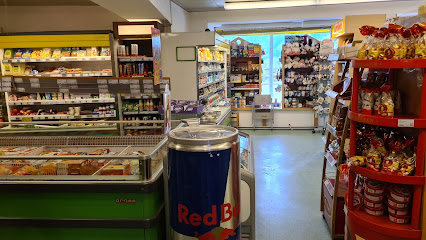
Intersport Kitzsteinhorn Oberschneider
Discover the best ski rental services at Intersport Kitzsteinhorn Oberschneider, your ultimate winter sports destination in the heart of the Alps.
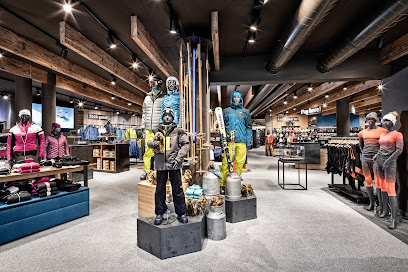
Kaufhaus Neumair GmbH & Co KG
Explore Kaufhaus Neumair in Kaprun for a delightful shopping experience with local flavors and fresh groceries amidst stunning mountain scenery.
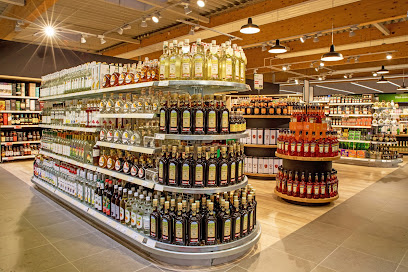
Kaprun Center - Gletscherbahnen Kaprun AG
Discover the breathtaking slopes and stunning vistas at Kaprun Center - the ultimate destination for skiing and alpine adventures.
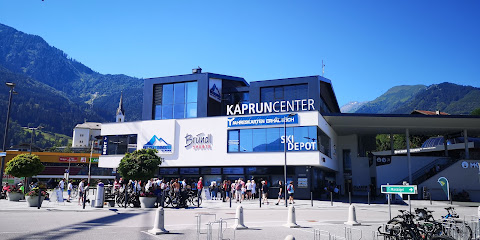
Sport & Mode Steiner, Skiverleih
Experience the thrill of winter sports at Sport & Mode Steiner, the premier ski rental shop in Matrei in Osttirol, with expert advice and top-quality gear.
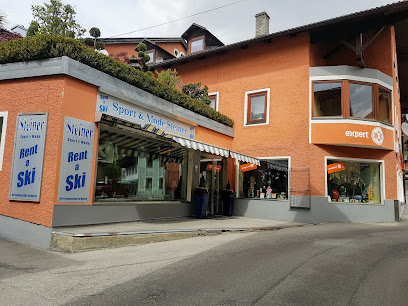
Charisma on the town square Zell am See
Explore Charisma in Zell am See for unique gifts, exquisite chinaware, and personalized glassware, a treasure trove for every souvenir seeker.
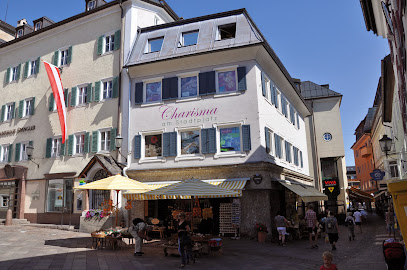
Alpinsport Gratz Gradonna
Discover the ultimate outdoor experience at Alpinsport Gratz Gradonna, your one-stop shop for skiing and outdoor adventure gear in Kals am Großglockner.
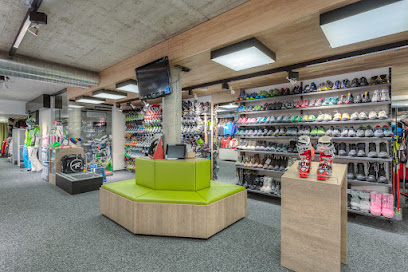
KiK Textilien u Non-Food GesmbH
Explore KiK Textilien in Matrei in Osttirol for stylish and affordable fashion, perfect for tourists wanting to refresh their wardrobe.
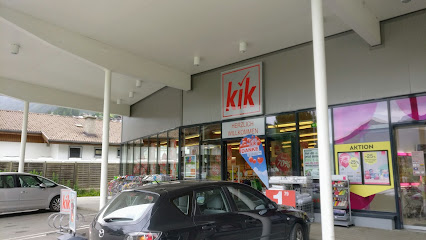
INTERSPORT Grossglockner
Discover your alpine adventure at INTERSPORT Grossglockner with top-notch rentals for skiing, snowboarding, and cycling in the heart of Austria's majestic mountains.
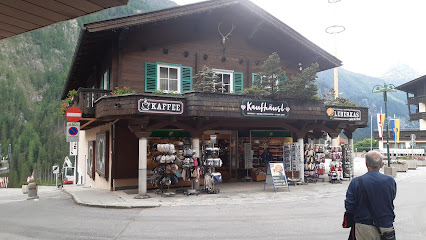
Gumpold Confetti & Outlet Store
Explore Gumpold Confetti & Outlet Store in Hinterglemm for unique gifts, souvenirs, and toys that capture the essence of your Austrian adventure.
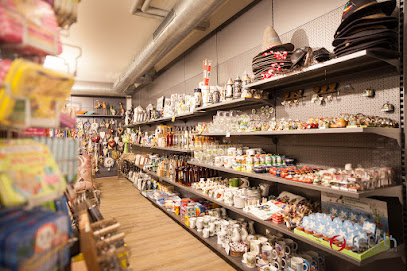
Bründl Sports Kitzsteinhorn Alpincenter
Discover Bründl Sports Kitzsteinhorn Alpincenter in Kaprun, your ultimate destination for skiing and outdoor sports gear in the heart of the Alps.
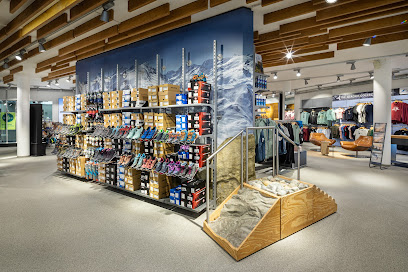
FondClothing
Explore FondClothing in Bruck an der Großglocknerstraße for unique fashion, accessories, and personalized shopping experiences in a charming setting.
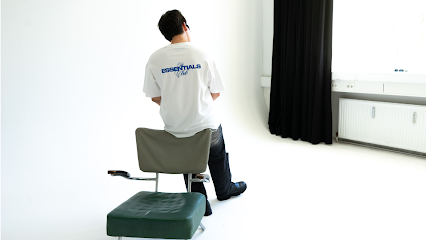
Depot
Discover unique gifts and stylish home decor at Depot in Lienz, Austria's charming shopping destination.
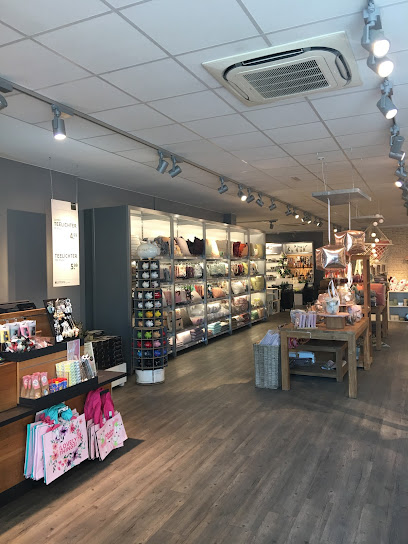
Essential bars & hidden hideouts
GINHOUSE | Pub | Zell am See
Discover GINHOUSE, the lively pub in Zell am See, offering a unique blend of local brews, vibrant atmosphere, and unforgettable nightlife.
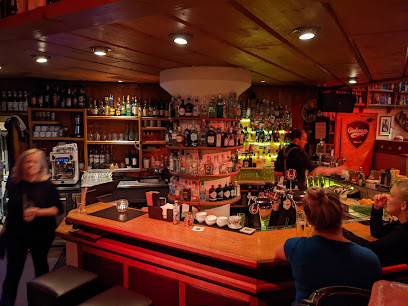
Café Bar Laterndl
Experience the warm ambiance and delightful beverages at Café Bar Laterndl, the perfect spot to unwind in Hof, Austria.
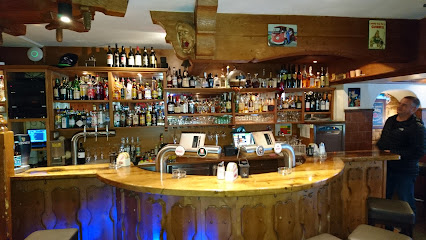
Figolalm auf 1777m
Experience the beauty and flavors of the Austrian Alps at Figolalm, a scenic bar and restaurant at 1777m, perfect for relaxation and dining.
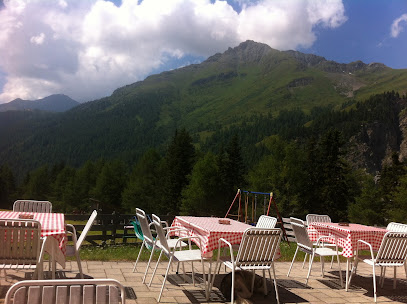
Parasol Apres Sky
Enjoy the perfect blend of stunning views and vibrant atmosphere at Parasol Apres Sky in Kaprun, Austria's premier après-ski bar.
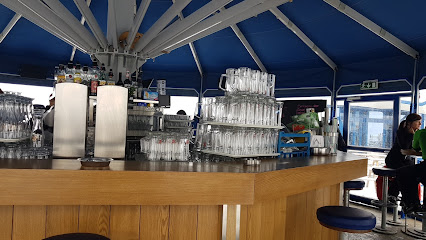
Die Mühle Heiligenblut
Discover the inviting atmosphere and stunning views at Die Mühle Heiligenblut, a charming bar in the Austrian Alps perfect for relaxation.
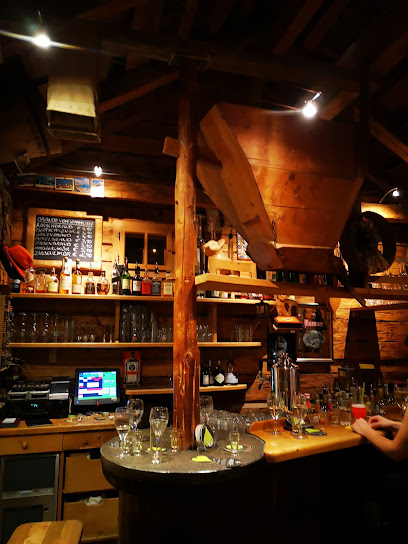
skyline - CAFÉ | BAR | LOUNGE (2.450 m)
Experience breathtaking views and delightful refreshments at Skyline Café, Bar, and Lounge, a must-visit destination in the Kitzsteinhorn Alps.
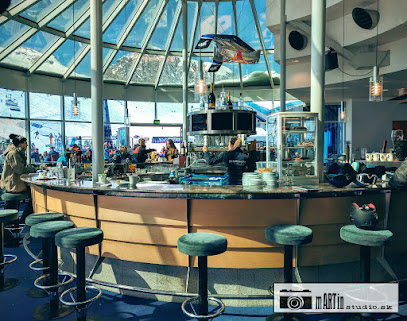
PanoramA Matrei
Experience breathtaking views and a cozy atmosphere at PanoramA Matrei, the perfect bar for relaxation in the heart of Tirol.
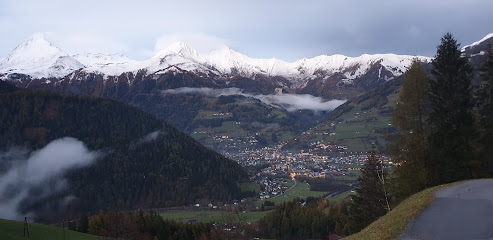
Cafe Bar Beo
Discover Café Bar Beo in Bruck an der Großglocknerstraße, where cozy ambiance meets delightful local flavors amidst stunning alpine views.
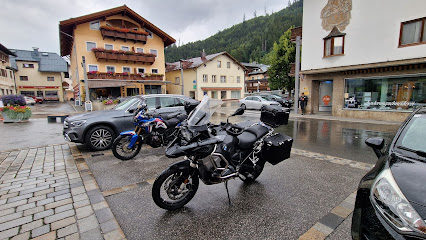
Kalser Eck
Experience the warmth and charm of Kalser Eck, the perfect bar for relaxation in the breathtaking Kals am Großglockner region.
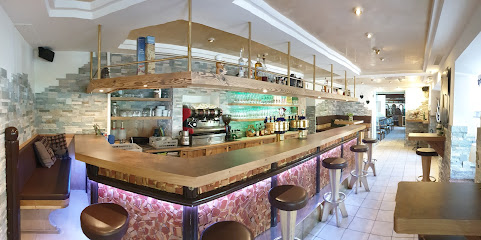
Alpenpub
Discover the warm hospitality of Alpenpub in Matrei in Osttirol, where every sip tells a story amidst stunning alpine scenery.
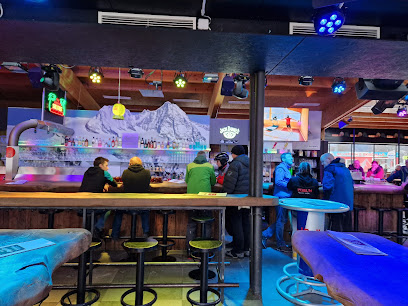
Müllers Bierschänke
Experience authentic Austrian hospitality at Müllers Bierschänke in Matrei in Osttirol, where local brews and hearty snacks await.
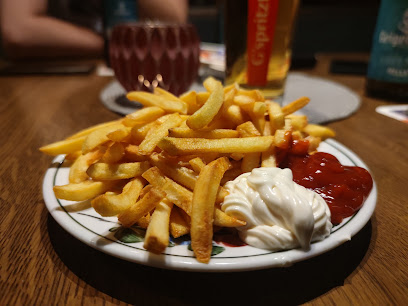
Café Cocktailbar Sinne
Experience the vibrant atmosphere of Café Cocktailbar Sinne in Virgen, Austria, where unique cocktails and a cozy ambiance await.
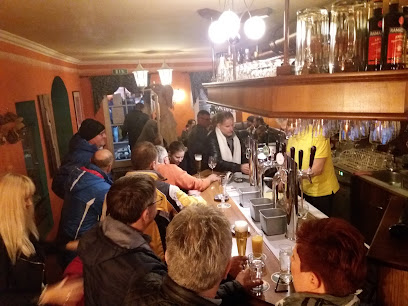
Oldtimer
Discover the flavors of Austria at Oldtimer, a charming gastropub in Rojach offering a delectable menu of traditional and contemporary dishes.
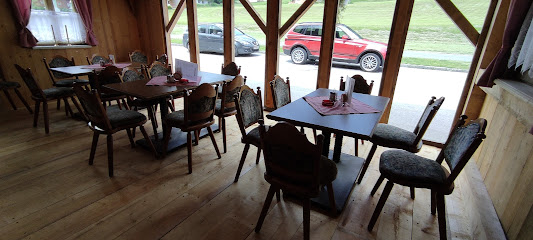
Michl's Bar
Discover the cozy charm of Michl's Bar in Unterburg, where locals and travelers come together for delicious drinks and a warm atmosphere.
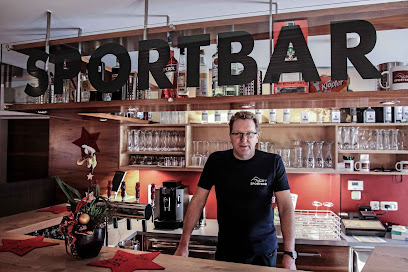
Local Phrases about Grossglockner
-
- HelloGriaß di
[Gree-ahss dee] - GoodbyeServus
[Ser-voos] - YesJa
[Yah] - NoNein
[Nine] - Please/You're welcomeBitte
[Bit-teh] - Thank youDanke
[Dahn-keh] - Excuse me/SorryEntschuldigung
[Ent-shool-dee-gung] - How are you?Wie geht es Ihnen?
[Vee gayt es een-en] - Fine. And you?Gut. Und dir?
[Goot. Oond deer] - Do you speak English?Sprechen Sie Englisch?
[Spreck-en zee Eng-leesh] - I don't understandIch verstehe nicht
[Ick fer-shtay-eh nikt]
- HelloGriaß di
-
- I'd like to see the menu, pleaseIch würde gerne die Speisekarte sehen, bitte
[Ick vur-deh geh-ren-eh dee Shpy-ze-car-teh zeh-en, bit-teh] - I don't eat meatIch esse kein Fleisch
[Ick ess-eh kine Fly-sh] - Cheers!Prost!
[Prohst] - I would like to pay, pleaseIch möchte bitte bezahlen
[Ick mehr-teh bit-teh beh-tzah-len]
- I'd like to see the menu, pleaseIch würde gerne die Speisekarte sehen, bitte
-
- Help!Hilfe!
[Hil-feh] - Go away!Geh weg!
[Geh vehg] - Call the Police!Rufen Sie die Polizei!
[Roo-fen zee dee Po-lee-tsey] - Call a doctor!Rufen Sie einen Arzt!
[Roo-fen zee igh-nen Ahrts] - I'm lostIch habe mich verirrt
[Ick hah-beh meech fer-eert] - I'm illIch bin krank
[Ick been krank]
- Help!Hilfe!
-
- I'd like to buy...Ich möchte ... kaufen
[Ick mehr-teh ... cow-fen] - I'm just lookingIch schaue nur
[Ick shou-eh noor] - How much is it?Wie viel kostet es?
[Vee feel koss-teht es] - That's too expensiveDas ist zu teuer
[Dahs ist tsoo toy-er] - Can you lower the price?Können Sie den Preis senken?
[Kern-en zee den prees zeng-ken]
- I'd like to buy...Ich möchte ... kaufen
-
- What time is it?Wie spät ist es?
[Vee shpayt ist es] - It's one o'clockEs ist ein Uhr
[Es ist ighn oor] - Half past (10)Halb zehn
[Halb tsain] - MorningMorgen
[Mor-gen] - AfternoonNachmittag
[Nahch-mit-tahg] - EveningAbend
[Ah-bend] - YesterdayGestern
[Gehs-tern] - TodayHeute
[Hoy-teh] - TomorrowMorgen
[Mor-gen] - 1Eins
[I-ns] - 2Zwei
[Tsvi] - 3Drei
[Dry] - 4Vier
[Fier] - 5Fünf
[Foonf] - 6Sechs
[Zeks] - 7Sieben
[Zee-ben] - 8Acht
[Acht] - 9Neun
[Noy-n] - 10Zehn
[Tsayn]
- What time is it?Wie spät ist es?
-
- Where's a/the...?Wo ist ein/der...?
[Voh ist iyn/dehr] - What's the address?Was ist die Adresse?
[Vahs ist dee Ah-dreh-seh] - Can you show me (on the map)?Können Sie mir zeigen (auf der Karte)?
[Kern-en zee meer tsy-gen (ouf dehr Kar-teh)] - When's the next (bus)?Wann kommt der nächste (Bus)?
[Vahn kommt dehr naych-steh (Boos)] - A ticket (to ....)Eine Fahrkarte (nach ....)
[Iy-neh Fahr-kar-teh (nahch)]
- Where's a/the...?Wo ist ein/der...?
History of Grossglockner
-
Grossglockner, the highest mountain in Austria at 3,798 meters, was first successfully ascended on July 28, 1800. The expedition was led by Prince-Bishop Franz Xaver von Salm-Reifferscheidt and included mountaineers Martin and Sepp Klotz. This historic climb marked the beginning of Grossglockner's reputation as a formidable and alluring peak for mountaineers.
-
Constructed between 1930 and 1935, the Grossglockner High Alpine Road is one of the most iconic mountain passes in Europe. Designed to enhance accessibility to the breathtaking scenery of the Hohe Tauern National Park, the road stretches over 48 kilometers and features 36 hairpin bends, offering awe-inspiring views of Grossglockner and its surrounding landscapes.
-
Established in 1981, the Hohe Tauern National Park is the largest national park in Austria. It encompasses Grossglockner and its surrounding areas, preserving the natural beauty and biodiversity of the region. The park is a sanctuary for numerous species of flora and fauna, and it provides a protected environment for outdoor activities such as hiking, climbing, and wildlife observation.
-
Grossglockner holds a significant place in Alpine folklore and traditions. The mountain has been a subject of legends and tales passed down through generations. One popular legend speaks of a giant named Glockner who lived on the mountain and protected the local communities. These stories contribute to the mountain's mystical allure and cultural heritage.
-
During World War II, the strategic location of Grossglockner made it a site of military importance. The Grossglockner High Alpine Road was used for military transport and logistics. Additionally, the region saw various military activities and skirmishes as the war impacted the entire Alpine region. Post-war, the area returned to its peaceful, natural state, but the remnants of wartime history are still remembered.
Grossglockner Essentials
-
Grossglockner is located in the Hohe Tauern National Park, Austria. The nearest major city is Salzburg, approximately 100 kilometers away. The closest international airport is Salzburg Airport W.A. Mozart (SZG). From Salzburg, you can rent a car or take a bus to Bruck an der Großglocknerstraße, the gateway to Grossglockner. Another option is to travel by train to Zell am See and then take a bus or taxi to the park.
-
Within the Grossglockner area, the Grossglockner High Alpine Road is the primary route for exploring the region. The road is typically open from May to October, weather permitting. Private vehicles, motorcycles, and bicycles are allowed on the road. Public transportation options include buses that operate during the tourist season, connecting key locations such as Heiligenblut and Fusch. Car rentals are available in nearby towns, and taxis can also be arranged for local travel.
-
The official currency in Austria is the Euro (EUR). Credit cards are widely accepted in hotels, restaurants, and shops in the Grossglockner area. However, it is advisable to carry some cash, especially for smaller establishments and rural areas. ATMs are available in towns like Zell am See and Heiligenblut, so you can withdraw cash if needed.
-
Grossglockner is generally a safe destination for tourists. However, like any travel destination, it is advisable to take standard precautions. Avoid leaving your belongings unattended and keep an eye on your valuables in crowded places. While there are no specific high-crime areas targeting tourists, staying vigilant and aware of your surroundings is always recommended. Be cautious when hiking or driving in mountainous areas, as weather conditions can change rapidly.
-
In case of emergency, dial 112 for immediate assistance. The local police and medical facilities are available in towns like Zell am See and Heiligenblut. It is recommended to have travel insurance that covers medical emergencies and outdoor activities. For minor health issues, there are pharmacies in nearby towns where you can purchase over-the-counter medications. Always inform someone of your travel plans if you are hiking or engaging in outdoor activities.
-
Fashion: Do wear appropriate clothing for outdoor activities, including sturdy hiking boots and weather-appropriate layers. Avoid wearing overly casual or revealing clothing in religious sites. Religion: Do respect local customs and traditions, especially when visiting churches and chapels. Public Transport: Do be respectful and give up your seat to elderly passengers. Avoid eating or drinking on public transport. Greetings: Do greet people with a friendly 'Grüß Gott' (God bless you) or 'Hallo.' A handshake is common for more formal introductions. Eating & Drinking: Do try local specialties, such as Kaiserschmarrn and Wiener Schnitzel, and enjoy them with a local beer or wine. Don’t refuse hospitality, as it is considered impolite.
-
To experience Grossglockner like a local, consider visiting during the shoulder seasons (late spring or early autumn) to avoid the peak tourist crowds. Engage with locals and ask for recommendations on lesser-known hiking trails and viewpoints. Don’t miss out on local events and festivals, which often feature traditional music, dance, and food. For an authentic experience, consider staying in a family-run guesthouse or mountain hut.
Trending Landmarks in Grossglockner
-
Großglockner Hochalpenstraße
-
Wild & Adventure Park Ferleiten
-
Grossglockner High Alpine Road
-
Jungfernsprung
-
Nationalpark Hohe Tauern
-
Haus Alpine Naturschau
-
Stüdlhütte
-
Kalser Tauernhaus
-
Glorer Hütte
-
Gößnitz-Wasserfall
-
Grossglockner Gletscherbahn
-
Panoramabahn Grossglockner
-
Fuscher Lacke
-
Kalser Glocknerstraße
-
Passheiligtum Hochtor
Nearby Cities to Grossglockner
-
Things To Do in Bad Gastein
-
Things To Do in Kitzbühel
-
Things To Do in Salzburg
-
Things To Do in Hallstatt
-
Things To Do in Innsbruck
-
Things To Do in Kranjska Gora
-
Things To Do in Bohinj
-
Things To Do in Klagenfurt
-
Things To Do in Bled
-
Things To Do in Nova Gorica
-
Things To Do in Munich
-
Things To Do in Škofja Loka
-
Things To Do in Kamnik
-
Things To Do in Sežana
-
Things To Do in Ljubljana










